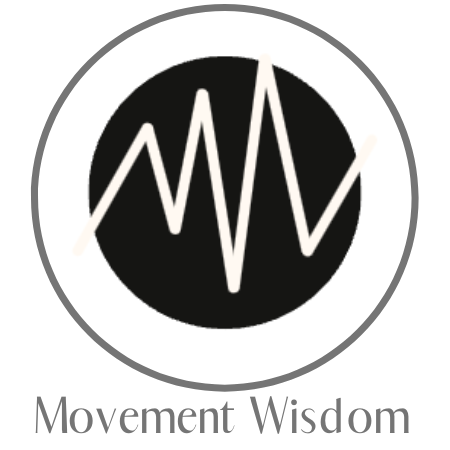I became obsessed with learning about the chakra symbols and their meanings soon after I started practicing yoga. At first, I didn't know anything about the chakras, but I quickly learned that yoga is more than just a physical practice and that understanding the ancient wisdom of the chakra system and symbols could change my life for the better.
Moreover, I became able to connect with my chakras, and I was amazed by all the incredible things our chakras can do for us if we tap into them. I was so intrigued that I had to understand more about how working with the chakra symbols can be incredibly potent and transformational.
If you've been curious to learn more about the meaning of each of the chakra symbols and the impact they have on your body, keep reading!
Article content:
(Click any link below to jump directly to section)

THE YOGA TEACHER TRAINING
YOU'VE BEEN LOOKING FOR.
Online Yoga Teacher Training Offers
- Affordability
- Flexibility
- Certification
- Lifetime access
⬇Click below to discover the best Yoga Alliance registered yoga teacher training online⬇
What are the chakra symbols?
The chakra symbols are visual representations of the seven primary energy centers in the body. Each chakra is associated with specific colors, attributes, symbols, elements, and spiritual meanings.
These symbols are integral to understanding the balance and flow of energy within the body which influence our physical, emotional, and spiritual well-being. As you can see in the image below, each of the seven chakra symbols has an intricate design and holds a profound significance.

History & origin of the chakra symbols
The chakra symbols and system originate from the Vedas, the oldest Indian texts. The Indo-Eurpoean people preserved and passed down knowledge of the chakra system verbally. Modern scholars, one of whom is Anodea Judith, have made this knowledge accessible to the wider public.
Colors & characteristics of the seven chakra symbols
All of the chakra symbols have one thing in common: a mandala. In Sanskrit, mandala means circle. This universal representation of infinity and the cyclical nature of energy represents the connection to ourselves and the divine.
Each chakra symbol, from its color to its petals, has a specific, hidden meaning and sacred symbolism. The seven chakra symbols are meant to:
- Focus the mind
- Help the mind let go of negative thoughts and mental disturbances
- Help us contemplate the qualities of a specific chakra
The 7 chakra symbols (in order)
- Root Chakra (Muladhara)
- Sacral Chakra (Svadhisthana)
- Solar Plexus Chakra (Manipura)
- Heart Chakra (Anahata)
- Throat Chakra (Vishuddha)
- Third Eye Chakra (Ajna)
- Crown Chakra (Sahasrara)
1. Root chakra (Muladhara)
- Sanskrit name:
Muladhara chakra, which means root or support.
- Association:
- The physical body.
- Color and element:
Color: Red
Element: Earth - Root chakra symbol:
A lotus with four petals and a downward-pointing triangle in the center, as well as the seed mantra LAM symbol.
Each of the geometric shapes in the petals contains one of the Sanskrit syllables वं vaṃ, शं śaṃ, षं ṣaṃ, and सं saṃ, which represent one of the streams of consciousness: joy, natural pleasure, delight in controlling passion, and blissfulness in concentration. - Root chakra symbol meaning:
The four petals represent four aspects of consciousness – the mind, the intellect, consciousness, and the ego.
The square symbolizes stability and rigidity in life, which makes sense since the root chakra is all about having stable foundations.
The inverted triangle represents the downward force of this chakra and its grounding energy.

2. Sacral chakra (Svadhisthana)
- Sanskrit name:
Svadhisthana, which means “where your being is established.”
- Association:
Pleasure, creativity, a sense of oneself, sensuality, and procreation in life. It is also associated with emotions and the unconscious.
- Color and element:
Color: Vermillion
Element: Water
- Sacral chakra symbol:
A lotus with six petals and two more lotus flowers within the chakra.
At the base of the symbol lies a crescent moon shape. The seed mantra, located in the center, is वं vaṃ.
- Sacral chakra symbol meaning:
The six petals in the sacral chakra symbol represent affection, pitilessness, destruction, delusion, disdain, and suspicion, all the obstacles to be overcome if you are to purify our sacral chakra.
The crescent moon shape symbolizes never-ending chaos, change, and movement.

3. Solar plexus (Manipura)
- Sanskrit name:
Manipura, which means “lustrous gem,” because it shines bright like the sun.
- Association:
Self-esteem, personal power, willpower, inner fire, and action in life.
- Color and element:
Color: Yellow
Element: Fire
- Solar plexus chakra symbol:
A lotus with ten petals. It has a downward-pointing triangle surrounded by three T-shaped svastikas. Svastika here is a Hindu symbol for fire. In the center, there’s a seed mantra रं' ram.
- Solar plexus chakra symbol meaning:
Ten is a number that symbolizes the beginning of a new cycle and the beginning of a new kind of awareness. Another interpretation is that the ten petals stand for the ten pranas or energy currents inside us.
The petals also correspond to the modes of spiritual ignorance, which are thirst, jealousy, treachery, shame, fear, disgust, delusion, foolishness, and sadness.
The downward-pointing triangle symbolizes the energy of the lower chakras spinning upwards towards the higher chakras.

⬇Yoga Alliance registered yoga teacher trainings you should look into⬇
4. Heart chakra (Anahata)
- Sanskrit name:
Anahata chakra, which means “unhurt, unstruck, and unbeaten.” This refers to the Vedic concept of unstruck sound (the sound of the celestial realm).
- Association:
Love, relation, compassion, and connection in life.
- Color and element:
Color: Dark green
Element: Air
- Heart chakra symbol:
A lotus with twelve petals and two intersecting triangles, one upward-pointing triangle and one pointing downward, together forming a six-pointed star.
- Heart chakra symbol meaning:
The star shape from the overlapping triangles in the heart chakra symbol represents a balanced union of masculine and feminine energy in the body. This is the star of radiance that shines from an open heart chakra.
The six points can also refer to the six other chakras, as they are all integrated at this center.

5. Throat chakra (Vishuddha)
- Sanskrit name:
‘Vishuddhi,’ which means ‘especially pure.’
- Association:
Communication.
- Color and element:
Color: Bright blue
Element: Ether
- Throat chakra symbol:
A lotus with sixteen petals, which has all the Sanskrit vowels on its petals. Inside the lotus flower are a downward-pointing triangle and a circle. Inside the circle is the seed mantra हं Ham.
- Throat chakra symbol meaning:
The triangle pointing downward in the throat chakra symbol symbolizes the manifestation of speech, and the circle refers to the full moon, a symbol of the purified mind.

6. Third eye chakra (Ajna)
- Sanskrit name:
Ajna chakra, which means ‘perceive,' ‘command,' or ‘beyond wisdom.’
- Association: Intuition in life and clairvoyance.
- Color and element:
Color: Indigo
Element: Light
- Third eye chakra symbol:
A lotus with only two petals, a circle, and an inverted triangle in the middle.
- Third eye chakra symbol meaning:
Numerous interpretations exist. I believe that there are only two petals because they represent Ida and Pingala which meet at this point.
The petals are also reminiscent of wings, illustrating this chakra’s ability to transcend time and space. The inverted triangle represents our connection to the divine.

7. Crown chakra (Sahasrara)
- Sanskrit name:
‘Sahasrara,’ which means ‘infinite.’
- Association:
Space or nothingness, self-transcendence, oneness, and the merging with the universal consciousness.
- Color and element:
Color: Light purple
Element: Thought
- Crown chakra symbol:
A lotus with a thousand petals and a circle in it.
- Crown chakra symbol meaning:
The thousand petals on the crown chakra symbol represent the connection to the divine. It’s about our prosperous and eternal unity with other beings and the universe. The circle stands for the full moon, signifying an awakened mind.

Takeaway on what each of the chakra symbols mean
I hope my brief introduction to the chakra symbols compels you to study this fascinating system more deeply. This is just the tip of the iceberg, actually! There's so much more to explore, such as chakra stones, chakra animals, chakra crystals, chakra healing, and more!
Some online yoga studios, online yoga teacher training programs, and brands that we write about may offer us a small commission should you decide to make a purchase or signup after reading our content. Thank you for enabling us to exist!








